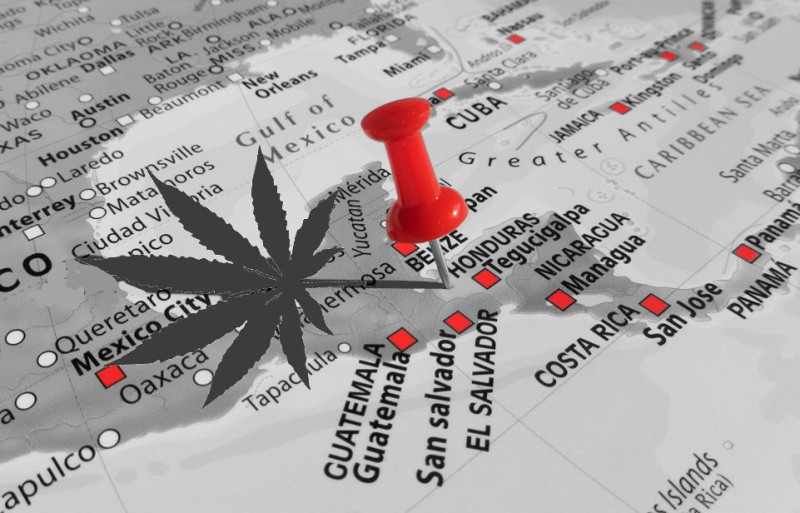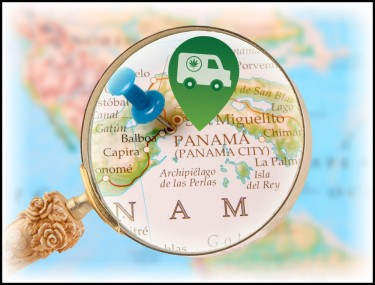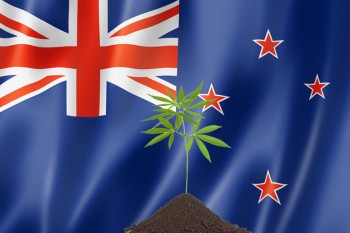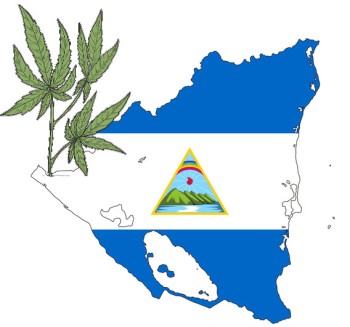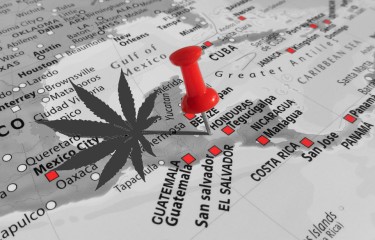
Two months ago, Salvador Nasralla, Executive Vice President of Honduras, went public about his support for cannabis cultivation solely for commercial and economic reasons. The vice president revealed this in an exclusive interview with El Planteo.
The interview sparked mixed public opinions as cannabis is federally illegal in Honduras. It is sometimes tolerated for medical purposes but not legal. The base of the Vice president's interview was generating more jobs—at least 85,000—for citizens. The country's records point out that there are over 1 million unemployed citizens in the country, which has less than 11 million residents.
Nasralla's Idea Of Cannabis Cultivation
The Vice President told El Planteo that what the country needs at the moment is a project to create job opportunities and increase the dollar revenue. He explained that his marijuana proposal is not about legalizing or decriminalizing the drug but rather about permitting the cultivation of cannabis on Honduras' lands.
He said that cannabis cultivation on at least 5,000 hectares could create jobs for up to 80,000 residents. Cannabis cultivation in Honduras could yield a billion-dollar business sometime in the future based on the fact that the country has enough sun and lighting all year round to facilitate the healthy production of cannabis plants. Nasralla told the interviewers about the low cost of cannabis production. He mentioned that it would cost as low as 15 cents to produce a gram of marijuana. In comparison, the same amount would cost more than $1 in Europe or North America. That is a difference of 7 times what it costs in Honduras. This minimal cost is majorly due to the favorable weather condition in the Banana republic.
Unlike several countries with temperate climate, Honduras enjoys 13 hours of sunlight each day. On some occasions, it drops to 11 hours. According to Nasrallah, the product does not have to be consumed in the country when there are high demands for the crop in other countries. All the government has to do is produce for export. The plants will be grown in nurseries and controlled grow facilities on a large scale to meet demand.
In the absence of demand, or perhaps supply exceeds demands; the vice president noted that the plant's materials would be processed into different products and stored or exported.
No action yet
El Planteo noted that the government is yet to kick start any project regarding the VP's proposal. When asked, Nasralla said that the president is yet to consider cannabis a valid policy. He further explained that he was speaking about it to publicize the prospects of cannabis cultivation.
In a few years, neighboring countries like Guatemala, Panama, and Costa Rica with approved cannabis policies will have generated thousands of jobs and significant revenues. VP Nasralla said that when this happens, Honduras will be at a disadvantage. "We can create a sizable number of employment in 5,000 hectares, which might be 10,000 because we have a lot of underutilized lands. Many enterprises can create 200 or 500 jobs, which is a lot", he added.
When the presidency is ready to approve this project, there are two possible ways it could go. Either the state lends its land to interested businesses, or it invests both its hands and its money. Nasralla stated that he had been approached by foreign investors prepared to fund cannabis cultivation on Honduras lands fully. The state would not have to spend a dime. However, everything would be controlled by these investors, from the necessary workforce to production, processing, and even security. They would ensure that the production facilities are maintained, and the products do not leave the facilities.
The vice president also explained that the exported products might be raw or cured flowers or processed cannabis products like oils, topical, gummies, or cannabis-derived drugs. He reiterated that it is possible for the products to be inaccessible to residents and that he has no interest in supporting the recreational consumption of cannabis products in Honduras.
Cannabis In Honduras
Honduras is strictly anti-drug. There is a lot of prejudice over cannabis use in the country. Majorly because the country is just only losing its title of being " a country of a band of drug traffickers." Even its former president was recently extradited to the United States. He served as head of cocaine trafficking within and outside the country.
Nasralla noted that it might be challenging to convince the majority of the Honduran population that growing and selling cannabis is the next step for economic development. He explained that he would broach the topic using cannabis therapeutic abilities.
Unlike cocaine and other banned substances, cannabis does not have a high amount of hallucinogens, especially the variants used for medical purposes. Cannabis can relieve pain, manage chemotherapy symptoms, and treat mood disorders. People who have benefitted from its medicinal qualities would agree that it is a blessing; however, most people who haven't consider it a taboo.
Making the VP's Project a Reality
For the VP's project to move from being a good idea to a reality, steps must be taken to legalize cannabis cultivation for only commercial purposes.
Nasralla pointed out that there must be political will from regulators who make the decisions. Cannabis cultivation for commercial purposes is important for the residents, especially those in need of jobs. Many people are experiencing tremendous hunger these days because work is difficult to find.
The VP believes Honduras needs to use its lands to enjoy economic benefits and create jobs for its unemployed populace. He recalled that the state is one of the worst countries in America, next to Haiti. According to the Vice President, this position in the quality of life index is enough for the state to reflect and switch positions on cannabis cultivation and legalization.
Bottom Line
Honduras has a million people who are desperately in need of jobs. As it stands, a well-oiled cannabis production industry could be what it needs to put a large percentage of the unemployed at work. Not to mention that it may also reduce the rate at which residents migrate to other countries like the United States and Spain.
